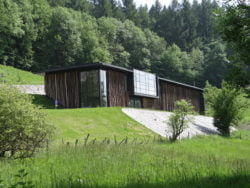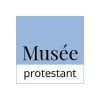
Ouvrez-le sur votre mobile !
Bienvenue
Nous sommes ravis de vous accueillir et nous espérons que votre séjour parmi nous sera des plus agréables.

Musée du Protestantisme

Musée
Ferrières
Détail de l'activité
Il permet de parcourir cinq siècles d’histoire et de vie protestantes dans le Tarn et plus largement le Sud-Ouest. Sa visite est bâtie autour de moments forts : la Réforme, l’édit de Nantes, la Révocation en 1685 et le temps du Désert, la réintégration et la réussite protestantes à l’époque contemporaine, l’affaire Dreyfus et les années 40.
Il est aussi un musée du fait religieux, proposant de découvrir une foi, des pratiques, des institutions religieuses, mais aussi une vision du monde, une culture en montrant les rapports particuliers que la minorité protestante a entretenus avec le politique, le social, l’économique, l’art et la mémoire.
On y découvre des Bibles, des psautiers, des objets de culte (interdit ou autorisé), ainsi que des éléments relatifs à l’alphabétisation ou à l’industrialisation du pays, en fonction du rôle joué par les protestants dans ces domaines.
Plusieurs histoires, directement ou en filigrane, entrecroisent ici leurs liens : celles du monde huguenot, du catholicisme, de la laïcité, mais aussi, parfois, du judaïsme, et celle des rapports toujours sensibles entre la cité des hommes et la cité de Dieu…
Ainsi le visiteur est-il convié à un parcours pleinement historique, laïque, comparatiste. Avec cette espérance, sinon la certitude, que « connaître son passé et celui de l’autre est l’une des meilleures manières d’apprendre à vivre ensemble » (Patrick Cabanel, conservateur).
Le musée est un acteur structurant de son territoire par la diversité et la qualité de l’offre d’animations culturelles (expositions, conférences, cafés-patrimoine, concert, ateliers, marches découvertes…) qu’il met en place tout au long de l’année à destination des touristes en saison, mais aussi et surtout pour les habitants du territoire.
Le Musée du protestantisme de Ferrières, musée de France, est animé et géré par une association loi 1901 qui compte plus de 200 membres dont une trentaine de bénévoles activement impliqués dans ses diverses activités.
Il est aussi un musée du fait religieux, proposant de découvrir une foi, des pratiques, des institutions religieuses, mais aussi une vision du monde, une culture en montrant les rapports particuliers que la minorité protestante a entretenus avec le politique, le social, l’économique, l’art et la mémoire.
On y découvre des Bibles, des psautiers, des objets de culte (interdit ou autorisé), ainsi que des éléments relatifs à l’alphabétisation ou à l’industrialisation du pays, en fonction du rôle joué par les protestants dans ces domaines.
Plusieurs histoires, directement ou en filigrane, entrecroisent ici leurs liens : celles du monde huguenot, du catholicisme, de la laïcité, mais aussi, parfois, du judaïsme, et celle des rapports toujours sensibles entre la cité des hommes et la cité de Dieu…
Ainsi le visiteur est-il convié à un parcours pleinement historique, laïque, comparatiste. Avec cette espérance, sinon la certitude, que « connaître son passé et celui de l’autre est l’une des meilleures manières d’apprendre à vivre ensemble » (Patrick Cabanel, conservateur).
Le musée est un acteur structurant de son territoire par la diversité et la qualité de l’offre d’animations culturelles (expositions, conférences, cafés-patrimoine, concert, ateliers, marches découvertes…) qu’il met en place tout au long de l’année à destination des touristes en saison, mais aussi et surtout pour les habitants du territoire.
Le Musée du protestantisme de Ferrières, musée de France, est animé et géré par une association loi 1901 qui compte plus de 200 membres dont une trentaine de bénévoles activement impliqués dans ses diverses activités.

